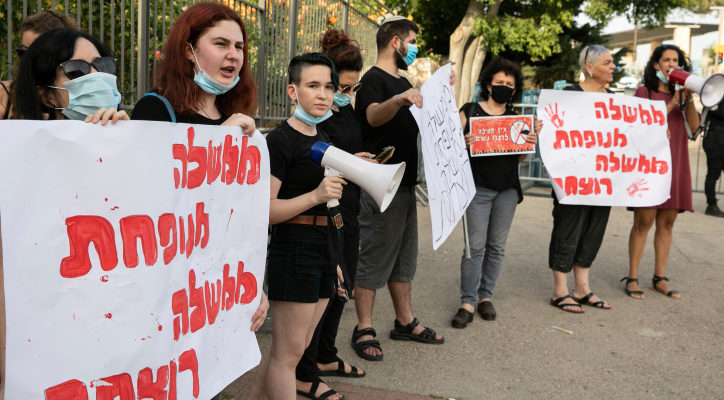Israel has declined to join treaty for 11 years, but left-wing outraged only now; Change government headed by Naftali Bennett shelved a Knesset vote on the issue.
By Lauren Marcus, World Israel News
As the coalition agreements between Likud and the Religious Zionism party continue to spark controversy, an additional clause has come to light – a pledge that Israel will not join the Istanbul Convention, an international treaty aimed at preventing violence against women.
Hebrew-language media outlets, followed by English-language sites and others, ran headlines portraying the agreement as a major capitulation by Prime Minister-designate Benjamin Netanyahu to Religious Zionism Chair Betzalel Smotrich, but the reality is that Israel’s reluctance to join the treaty is nothing new.
The Istanbul Convention was launched and opened for signatures in 2011; since then, 45 countries and the European Union government have signed. But for 11 years, Israel has declined to join the pact.
The reason is simple: The Istanbul Convention mandates that countries must provide legal status to women who report that they are the victims of gender-based violence or say that they have fled from a nation where they could be the targets of gender-based violence, even if they are in said country illegally.
For years, Israeli officials have expressed concern over this clause, as it creates a loophole for economic migrants who have entered Israel illegally or overstayed their visas to obtain legal status in the country.
Earlier this year, under the so-called “change” government headed by former Prime Minister Naftali Bennett, Justice Minister Gideon Sa’ar attempted to raise the issue of Israel joining the Istanbul Convention.
However, outgoing Minister of the Interior Ayelet Shaked expressed opposition to the move, writing in an open letter to Sa’ar that the ramifications of the agreement on Israel’s border control were untenable.
Israel’s entry into the pact would allow an “unprecedented population in scope [to] lay claim to refugee status or at least to protection from deportation,” she wrote.
Shaked added that the Istanbul Convention creates “an opening for an infinite number of asylum requests with justifications that are almost impossible to disprove” and creates a situation that is ripe for “the exploitation of the Israeli asylum system.”
Sa’ar agreed to shelve a Knesset vote on the matter. Several months later, outgoing Prime Minister Yair Lapid once again brought up the idea, but Attorney General Gali Baharav Miara said a vote on the issue would be inappropriate during an election period.
There was no outcry among Israeli media outlets when Sa’ar shelved the vote, nor when the attorney general later prevented it from coming up for discussion.
Israel has extensive laws aimed at protecting women who are the victims of domestic violence. Abused women receive free medical treatment, psychological help, cash aid for housing and daily expenses, compensation for lost wages, free housing in women’s shelters, cash grants if they live in a shelter, and legal protections that prevent employers from firing them during the time they reside in a shelter.
In 2021, 16 Israeli women were murdered by their domestic partners or family members. Considering that Israel has a population of 9 million, this is one of the lowest rates of femicide globally.
In recent years, a number of European countries, including Slovakia, Poland, and the Czech Republic, have either begun the former withdrawal process from the treaty or declined to ratify it, citing concerns over wording which appears to allow non-biological women to claim rights under the treaty, along with parts of the treaty that equate emotional and psychological abuse with physical violence.




